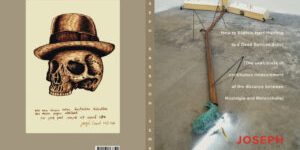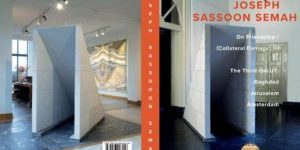Culture And Identity After Brexit
No comments yet The United Kingdom’s accession to the European Union in 1973 has always been somewhat of an anomaly. The founding fathers of the European Coal and Steel Community, were it commenced, all had the common objective to prevent the causes that had led to two world wars.
The United Kingdom’s accession to the European Union in 1973 has always been somewhat of an anomaly. The founding fathers of the European Coal and Steel Community, were it commenced, all had the common objective to prevent the causes that had led to two world wars.
First objective was to create a common market and subsequently increased cooperation and exchange between the peoples of Europe would develop. The UK was actually only interested in commerce and the benefits of a common market. They were only mildly interested in the implicit political objective of an increasing European union.
Initially this deviating position did not stand out; that is until the Maastricht Treaty in 1992. When the European Union was founded, the interests of the then Member States ran more or less parallel. Membership gave access to the common market, thereby bringing each member undeniable great financial benefits. Gradually however it seemed that the United Kingdom found that to be sufficient.
The political commotion they caused over the abolition of their Imperial measurements for the metric measurement system (meters, kilo’s, litres) gave a clear impression of the lack of any understanding of the ‘European ideal’ by the people of this island.
Teamwork
The UK has therefore never joined the Schengen Agreement, let alone the Eurozone. David Cameron has, up to the last moment, strongly opposed more competences to Brussels.
Now that Brexit is a fact, Europe can concentrate on the ultimate objective of the whole project: shaping a continent in which economic prosperity can coexist with progressive development of the democratic participatory process, improve the exercise of citizenship for all Member States and attention for the community of values which do not exist –in this form- in other parts of the world.
The identity of Europe is after all determined by the unique interaction between economic collaboration and democratic development.
Culture and identity
After the departure of the British perhaps the focus on the Anglo-Saxon model, of which Dutch Prime Minister Rutte is such a great advocate, will be shifted towards the ‘Rhineland Model’ that allows wider scope and interest for the social and cultural rights of citizens. Apparently the European Commission, supported by President Macron, has already anticipated this as they pleaded for a radical budget increase for Education and Culture in their contribution to the meeting of European leaders at Gothenburg on December 17th 2017. The motivation of the EC regarding the proposed required doubling of the budget: “Strengthening European identity through education and culture”. Point made!
Several governments in Europe have recently done their utmost at marginalising the importance of art and culture; now the European Commission is encouraging the cultural institutions of these very countries to have a leading role in the development of civic competencies and to encourage citizenship education, thus empowering future generations against non democratic of otherwise totalitarian forces.
Ignored
It is not surprising that this notion was not really received with enthusiasm by the internationally operating educational establishments. In order to successfully participate in the Erasmus+ programme they had placed greater emphasis on the enhancement of skills and competences and labour market potentials by cooperation with fellow institutions in the EU and abroad.
Aspects like European citizenship or citizenship- and identity building remained unconsidered.
The national cultural policy finds itself in an even more parlous state: the first time that the concept of ‘active citizenship’ was mentioned in a formal advice to the Dutch government was in 2007. And it was also the last time. Could it be that the Netherlands Council of Culture –who issued this opinion- as well as the government under Prime Minister Rutte were seized by popular neo-liberalism which was somewhat hidden in the offered caption of “Anglo-Saxon model”?
When asked, the Council had nothing to state on the matter. Even now, in their most recent recommendation , the notion that art now and always will be an extremely important form of identification to citizens is missing; whether you are an active consumer of art or a passive member of a cultural society participating in that society.
Remarkable is that institutions that have nevertheless applied these insights for many years (contrary to the subsidized ones) are now being rewarded by the European Commission . The Commission endorses the understanding that European unification can only be successful if viewed as a cultural process (motto of A Soul for Europe, Berlin 2004). Cultural refers to: including citizens, their initiatives and contributions to an increasing quality of the democratic process. It seems to me that opponents of the European Union are in fear of this form of civic participation.
The success of Erasmus and other mobility programmes suggests that irrational resistance to the EU as the force behind participation is slowly subsiding.
Doubling of the EU budget for similar programmes as proposed in Gothenburg, is a good start.
You May Also Like
Comments
Leave a Reply





